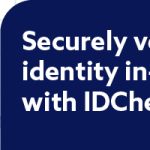A: In 2017, the Identity Theft Resource Center counted a new record high of 1,579 data breaches, exposing more than 178 million records.
Nearly 60 million Americans have been affected by identity theft, according to a 2018 online survey by The Harris Poll. That same survey indicates nearly 15 million consumers experienced identity theft in 2017. What are the most common types of identity theft? According to the Federal Trade Commission, the government agency that maintains a sort of warehouse for identity theft complaints, the crime falls into six major categories:
- Employment- or tax-related fraud (34%)
What it is: A criminal uses someone else’s Social Security number and other personal information to gain employment or to file an income tax return.
- Credit card fraud (33%)
What it is: The thief uses someone else’s credit card or credit card number to make fraudulent purchases.
- Phone or utilities fraud (13%)
What it is: The criminal uses another person’s personal information to open a wireless phone or utility account.
- Bank fraud (12%)
What it is: The fraudster uses someone else’s personal information to take over an existing financial account or to open a new account in someone else’s name.
- Loan or lease fraud (7%)
What it is: A borrower or a lessee uses someone else’s information to obtain the loan or lease.
- Government documents or benefits fraud (7%)
What it is: The criminal uses stolen personal information to obtain government benefits.
What are the best ways you can protect yourself? At Midwest Community we suggest the following to our members to ensure that they aren’t victims of Identity Theft:
- Secure your hard copies – make sure that sensitive paperwork is kept in a safe. Debit and credit cards should be securely stored in your wallet at all times.
- Choose strong passwords – make sure your passwords aren’t something easy that everyone or anyone can figure out. Add a capital letter, numbers, or make the password a phrase that you can remember.
- Review your Financial Statements – make sure you are keeping track of the financial paperwork that is being sent to you by checking for fraud. Report anything that may seem suspicious to you.
- Avoid public wifi – Public wifi allows identity thieves to easily access personal information because your computer is unprotected. At the very least, avoid all banking or financial logins while on public wifi.
- Be wary of suspicious emails and websites – the internet is a great place for scammers to easily get a hold of your information. While most of us are aware of this, it can be a welcoming email that grabs our attention and allows scammers access to private information.
- Protect your computer – invest in anti-virus malware protection that scans your computer to ensure that your information is protected.
There’s no way to prevent identity theft, but there are steps you can take to help minimize the risk. Knowing those steps may give you a peace of mind and will give a bit more control over the personal information identity thieves are after.














